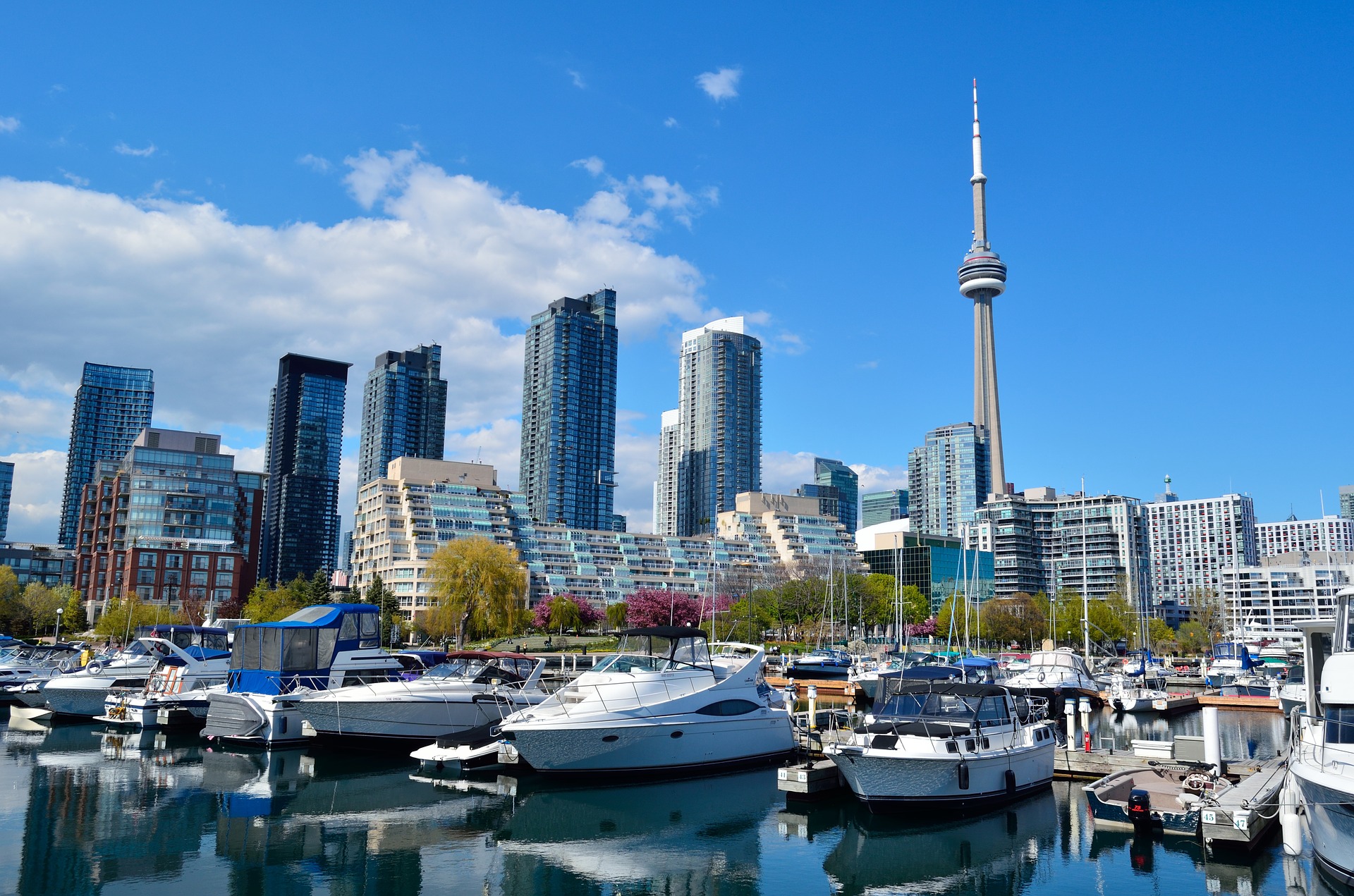Is Canadian Dual Citizenship allowed?
Canada has recognized and allowed dual citizenship since February 15, 1977, with the effectiveness of the Citizenship Act, a testament to the country’s commitment to diversity and multiculturalism. The Canadian law in fact allows persons to hold two or more citizenships, meaning any original citizenships does not need to be given up when attaining Canadian citizenship. Canadian dual citizenship as well as multiple citizenships, are therefore allowed under Canadian law- it is not solely restricted to two as there is technically no actual limit to how many other citizenships a Canadian may hold.
Holding Canadian dual citizenship might impose complications when it comes to legalities, taxation, and compulsory military service, amongst others. Canadian taxation obligations are based on residency status rather than citizenship. Individual residency is on a case-by-case basis, and there are no strict rules. The Canada Revenue Agency reviews residential ties to Canada, normal residency status, and various other factors to determine whether a Canadian dual citizen is to be taxed or not.
It is prudent to note that as not all countries allow dual citizenship, some countries might revoke citizenship once an individual acquires a Canadian passport. Canadian citizens cannot lose their citizenship unless they renounce it voluntary via a complex legal procedure. To be eligible to renounce Canadian citizenship, an individual must:
- Be a citizen of another country or become one following renunciation approval;
- Not live in Canada;
- Be at least 18 years old;
- Not be a threat to Canada’s security or form part of any criminal activity;
- Not be prevented from understanding the significance of renouncing Canadian citizenship by reason of having a mental disability and;
- Not be subject to revocation of citizenship proceedings

Travelling with a Canadian Dual Citizenship
When travelling or transiting through Canada, however, nationals with Canadian dual citizenship need to be carrying their Canadian passport. When boarding the flight to Canada, Canadian dual citizens would need to present airline check-in staff and border officials with a valid Canadian passport to confirm their Canadian citizenship.
The valid Canadian passport acts as the only substantial and reliable travel document providing proof that an individual is a Canadian citizen and is allowed to enter Canada without being subjected to immigrant screening. These regulations concerning travelling were introduced on November 10, 2016 following the implementation of a new government electronic system which verifies that all passengers boarding a flight to Canada have the appropriate travel document. The change in regulation was part of a broader measure in ensuring that all Canada-bound passengers are in possession of the proper travel documents.
Acquiring Canadian dual citizenship- for Canadian citizens
A Canadian citizen may obtain a foreign citizenship without any risk of losing his/her Canadian citizenship, and vice-versa, as granted through the Canadian Citizenship Act. This, however, is also subject to the citizenship laws of the country issuing citizenship.
Canadian dual citizenship for individuals who are originally Canadian citizens may be acquired in several ways, including:
Birth
Also known as the principle of ius soli or the law of the soil. Should an individual be born in a foreign territory, he/she may be entitled to said country’s citizenship. Therefore, a child born to at least one Canadian parent in a foreign territory may acquire Canadian dual citizenship. Nevertheless, conditions pertaining to ius soli vary according to each country.
Descent
Otherwise known as ius sanguinis, this implies the inheritance of citizenship from parents or ancestry. Should a person be born on Canadian territory to at least one immigrant person, he/she may acquire Canadian dual citizenship if the country of the second citizenship allows it. The citizenship by descent laws of the concerned country must be taken into consideration, as well as whether they do or do not allow dual citizenship.
Adoption
Minors holding Canadian citizenship may attain Canadian dual citizenship if adopted by foreign parents.
Marriage
The process of attaining citizenship might be accelerated in some countries in the circumstance of a foreigner marrying a citizen of the country. Canadian dual citizenship may therefore be acquired by a Canadian citizen in the case of marrying a foreign citizen. This is however, once again, subject to citizenship laws in each separate country.
Naturalisation
Naturalisation entails a process whereby a Canadian citizen may obtain citizenship in a foreign country. Citizenship is granted on the basis of a number of legal requirements which must be met, and which vary according to each country.
Citizenship by Investment Programmes
Citizenship by investment programmes are one type of naturalisation which have increased in popularity in recent years. Through such programmes, a Canadian may obtain Canadian dual citizenship by fulfilling specific investment and eligibility criteria. The benefits and details of what countries in particular offer the option of citizenship by investment will be delved into further below.
Acquiring Canadian dual citizenship- for foreign citizens
Foreign individuals seeking to acquire Canadian dual citizenship should consult the citizenship laws of their own country to evaluate any repercussions on their current citizenship status should they obtain Canadian citizenship.
Foreign citizens may attain Canadian dual citizenship in a number of ways, primarily:
Birth
As a general rule, almost everyone born in Canada is granted Canadian citizenship. Hitherto, a child born to a foreign citizen on Canadian soil might be entitled to Canadian dual citizenship. Exceptions to this include cases where a child is born to a diplomat or consular officer or other representative/employee of a foreign government in Canada; or if neither of the parents was a Canadian citizen or Canadian permanent resident at the time of birth.
Descent
Individuals born after February 15, 1977 to a Canadian parent outside Canada automatically obtain Canadian citizenship. This is however restricted up to one generation born outside of Canada, meaning that if the Canadian parent was also a citizenship by descent, the child would not be eligible for Canadian citizenship.
Adoption
Following an amendment to the Citizenship Act on July 22, 2007, children born in a foreign country who are adopted by a Canadian citizen are entitled to apply for immediate citizenship. If successful, the adopted child would become a Canadian dual citizen, subject to his/her native country’s citizenship laws.
Naturalisation
Foreign citizens may attain Canadian dual citizenship through Canada’s naturalisation process. In order to qualify for Canadian citizenship through naturalisation, applicants need to abide by a number of conditions, including:
- Permanent residency: Regardless of age, in order to apply for Canadian citizenship, applicants need to have an unquestionable Permanent Residency (PR) status. Applicants must not be under review for immigration or fraud reasons, not have certain unfulfilled conditions related to your PR status, and not be under a removal order.
- Time lived in Canada: Applicants must have been present in Canada for 1095 days during the five years preceding the date on which the application is submitted. Time spent in Canada as a temporary resident or protected resident could also contribute to the 1095 days, however under this condition each day spent in Canada is counted as a half day, with a maximum of 365 days towards physical residence.
- Income tax filing: If required under the Income Tax Act applicants must meet personal income tax filing obligations in three tax years that are fully or partially within the five years right before the date of application.
- Language requirements: To become a Canadian dual citizen, an applicant must be able to speak or listen to one of Canada’s official languages, that is, either English or French.
- Canada citizenship test: Applicants must display sufficient knowledge on Canada by taking a citizenship test. Questions deal with topics including Canada’s values, history, symbols and institutions.
- Prohibitions: Individuals who have committed a crime inside or outside of Canada might not be eligible to become Canadian citizens for a period of time. Time spent serving a sentence of imprisonment, parole, on probation does not count as time lived in Canada.
Programme Alternatives to Canadian Dual Citizenship

- Immigrant Investor Venture Capital (IIVC) Pilot Program
The federal Immigrant Investor Venture Capital Pilot Program provides a route for Canadian permanent residency to high-net-worth individuals. Qualifying candidates must have a net worth of at least $10 million CAD, and must make an at-risk investment of $2 million CAD, which must in turn be held for 15 years with no return guarantee. With regards to the $10 million CAD net worth of the individual, inheritance money does not count, nor does the value of the primary residence. Instead, the money must be earned through lawful private business activity and/or investment. There is also an Education requirement to the programme- applicants must have completed a Canadian post-secondary degree, diploma or certificate of at least one year; or the foreign equivalent, as verified by an Educational Credential Assessment (ECA). Furthermore, applicants must be proficient in either English or French. Naturally, Canadian dual citizenship may be attained down the road through the programme.
- Quebec Immigrant Investor Program (QIIP)
Similar to the Immigrant Investor Venture Pilot (IIVC) Program, the Quebec Immigrant Investor Program (QIIP) grants permanent residency to high-net-worth individuals who make a significant investment. Out of the two programmes, however, the QIIP asks for a smaller investment and has fewer requirements. For the new round of applications of September 2018-March 2019, a quota of 1900 applications has been set. Candidates will be required to invest $1.2 million CAD interest-free for a period of five years. As opposed to the QIIP, the original investment is guaranteed and paid back to the applicant following a period of 5.5 years. Once again, there is a net-worth requirement, this time of $2 million CAD. Successful applicants also need to have a minimum of two years of management/business experience within five years preceding the application submission. Lastly, applicants must have the intention of settling within the province of Quebec. By achieving permanent residency, this can serve as a way to eventually attain Canadian dual citizenship.

- Start-Up Visa Program
The Start-Up Visa Program (federal) provides a more feasible option for some. It is targeted towards immigrant entrepreneurs with the ability of bringing innovation and global competitiveness to Canada, as well as creating jobs for Canadians. In order for the business to qualify, an applicant must be in possession of 10% or more of the voting rights attached to all shares of the corporation, and the applicant and the designated organization together must jointly hold more than 50% of the total voting rights. Applicants must be able to communicate and work in English or French. There are also monetary requirements where applicants must prove they have enough money to support themselves and their family since the Canadian government does not provide financial support to new Start-up Visa immigrants. The amount of money needed depends on the size of the applicant’s family. Since it offers permanent residence, the program can also serve as another way to attain Canadian dual citizenship.
- Quebec Entrepreneur Program
The Quebec Entrepreneur Program, in contrast, is targeted more towards experienced business persons rather than start-ups. It is a highly competitive programme with strict quotas and a rigorous application process, that allows applicants to live in Quebec on a Canadian permanent residency after developing or purchasing a business in the province. Applicants must firstly prove that they hold net assets of at least CAD $300,000 between them and their spouse. Successful business management experience must be demonstrated, meaning at least two years in the preceding five years running a profitable business where the applicant held at least 25% of the capital equity with a value of at least CAD $100,000 between himself/herself and the spouse. Investors must hold at least a 25% share of capital equity of the purchased or new business, between them and their spouse. Proficiency in either English or French is also a requirement. This program is yet again one other alternative which can lead to Canadian dual citizenship as time goes by.
- Citizenship by Investment Programmes
Foreign citizens applying through any of the aforementioned programmes may then proceed to eventually apply for Canadian citizenship through naturalisation. The programmes however, more often than not, involve a lengthy and highly competitive process.
Nowadays, several countries internationally have introduced what are known as Citizenship by Investment Programmes. These reward applicants with citizenship should they meet the specific investment and eligibility criteria of the programme. Some of these programmes boast of many of the benefits that attract immigrants and investors to Canadian dual citizenship.
Successful citizenship by investment programmes include of distinguished European programmes, such as those offered by Malta and Cyprus, which give successful applicants the option to enjoy the quintessential European lifestyle, and reside, live, and do business anywhere in the EU, while travelling freely within the area. For those who value facilitated global mobility yet desire more flexibility in their investment options, Caribbean programmes such as those offered by St Kitts and Nevis, Saint Lucia, Antigua, Grenada, and Dominica, all over viable alternatives.

Among the benefits of citizenship by investment programmes, there are the following:
- Visa-free travel: Most of the countries offering citizenship by investment programmes enjoy an extensive list of visa-free travel countries. This would particularly be attractive to investors who originate from countries that are relatively restrictive when it comes to global mobility. Successful new citizens would for the most part find it easy to travel almost anywhere internationally, whether for business or personal reasons.
- Tax incentives: Citizenship by investment programmes are particularly enticing since they offer a route to citizenship in a country with attractive fiscal benefits. All of the citizenship by investment countries have some sort of taxation benefit, including exemption of taxation on foreign income, wealth, inheritance, or capital gains.
- Personal Security: High-net-worth individuals looking for more security in their personal lives can very easily find it by investing in citizenship by investment programmes. By attaining a dual citizenship, investors can rest easy that in times of crises they have their own haven in a sheltered, stable and peaceful country.
- Better quality of life: Investment through one of the citizenship by investment programmes could instantly boost the quality of life of any high-net-worth individual. Not only can successful applicants benefit from superior levels of education and healthcare, but they can also enjoy the bliss of either an advanced European, or tropical Caribbean way of life.